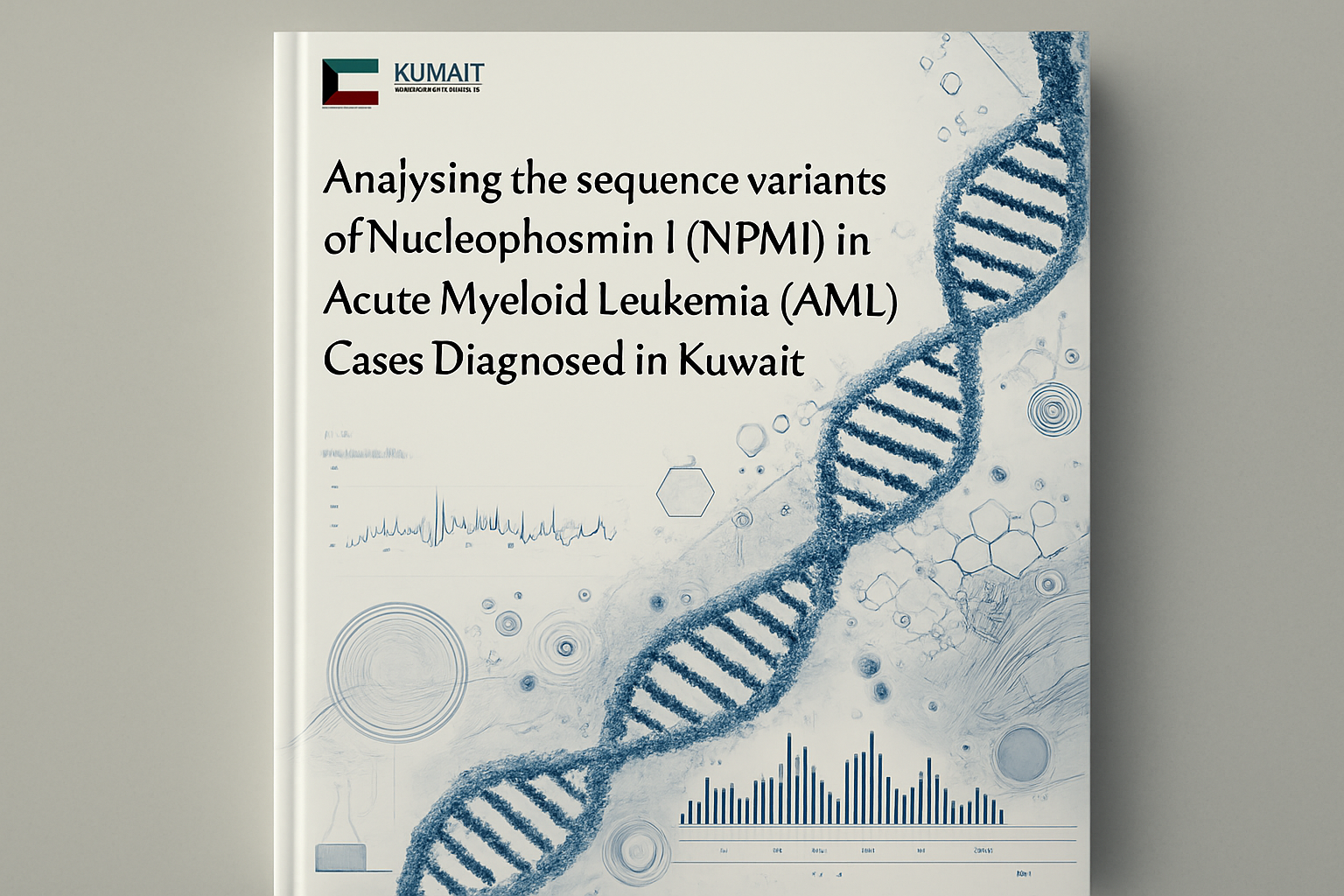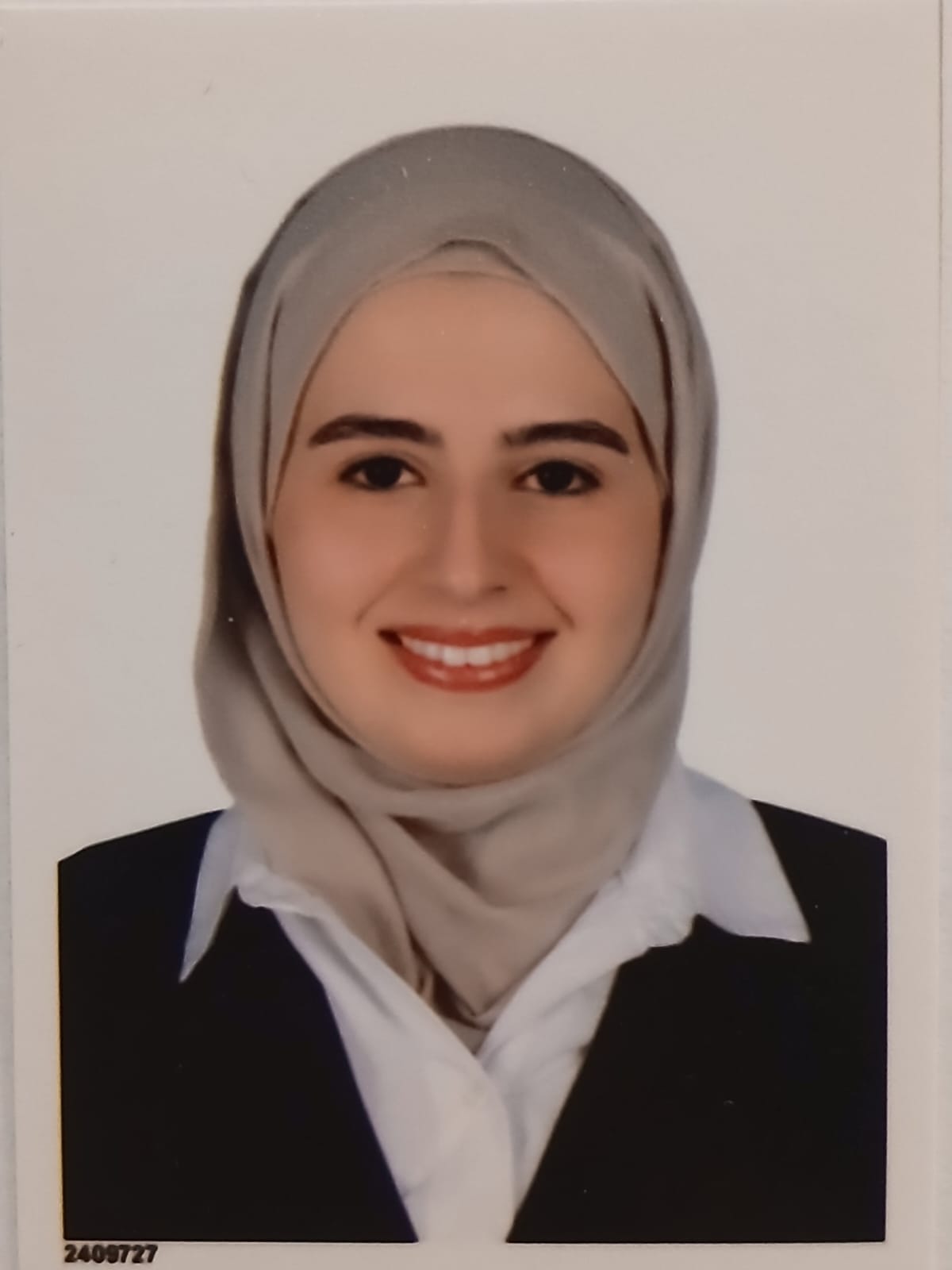Analysing the sequence variants of Nucleophosmin 1 (NPM1) in Acute Myeloid Leukemia (AML) Cases Diagnosed in Kuwait.
January 2023 - June 2026

Project Description
AML is a complex and aggressive haematological neoplasm characterized by the clonal proliferation of immature myeloid blast cells (Myeloblasts), resulting in the failure of the bone marrow and a marked decrease in the number of mature blood cells (Boscaro et al., 2023). It is a life-threatening hematologic malignancy with significant genetic variability, influencing both prognosis and treatment response. Among these genetic factors, NPM1 mutations play a crucial role in AML classification, yet their prevalence and clinical impact in AML patients in Kuwait remain unexplored. This research project is conducted in Kuwait Cancer Control Centre (KCCC) under the supervision of Dr.Salem Alshemmari to sequence the NPM1 gene in AML patients diagnosed in Kuwait and screen it for possible variants and investigate their association with Minimal Residual disease (MRD). In addition, we will compare the sequence to other populations to identify differences and similarities.
Objectives
1- Sequence the NPM1 gene in AML patients and healthy controls in Kuwait. 2- Identify and characterize sequence variants, including single nucleotide polymorphisms (SNPs) and insertion/deletion (INDEL) mutations. 3- Assess the relationship between NPM1 mutations and minimal residual disease (MRD), a measure of how much cancer remains after treatment. 4-Compare NPM1 variants in AML patients in Kuwait with global data, to identify unique or shared genetic features to assess the variant risk AML in our study.
Methodology
Collecting blood samples from 50 participants (AML and non- AML participants) Performing DNA extraction, PCR amplification, and sequencing of the NPM1 gene by Sanger. Analyzing sequencing results using bioinformatics tools to detect genetic variants. Conducting statistical and haplotype analyses to explore associations between variants and disease risk or progression. RNA extraction, Reverse transcription PCR (Rt-PCR) and MRD analysis of NPM1 transcript levels.
Project Team

Sara Zakzak
Master's Student
Kuwait University
ResearcherMaster's Student in the Molecular Biology Program

Dr. Salem AlShemmari
Hematologist Oncologist
Kuwait University
SupervisorDr. Salem H. D. Al-Shemmari is a hematologist oncologist dedicated to advancing patient care in hematological and other malignancies.
Dr. Salem H. D. Al-Shemmari is a hematologist oncologist dedicated to advancing patient care in hematological and other malignancies through clinical practice, teaching, and research. He graduated from Kuwait University with a B.M.B.CH. degree and became a fellow of the Royal College of Physicians of Canada in Hemato-Oncology in 1994. He further specialized in Hematopoietic Stem Cell Transplantation at the Fred Hutchinson Cancer Research Center in Seattle in 1995. Dr. Salem serves as academic staff in the Department of Medicine, Kuwait University, teaching at both undergraduate and postgraduate levels. He established the Medical Oncology Fellowship Program and contributed to the Hematopathology and Hematology Fellowship Programs. He has established the myeloid neoplasm reference Lab at Kuwait Cancer Center. He is also a member of the Department of Hematology, Kuwait Cancer Center. Dr. Salem has authored over 60 peer-reviewed research papers, numerous review articles, technical reports, and laboratory manuals. He has led more than 10 peer-reviewed research grants, serving as principal investigator on 8. Author of a textbook titled ‘Basis of Malignant Hematology Practice in Kuwait: Emphasis on Local Data